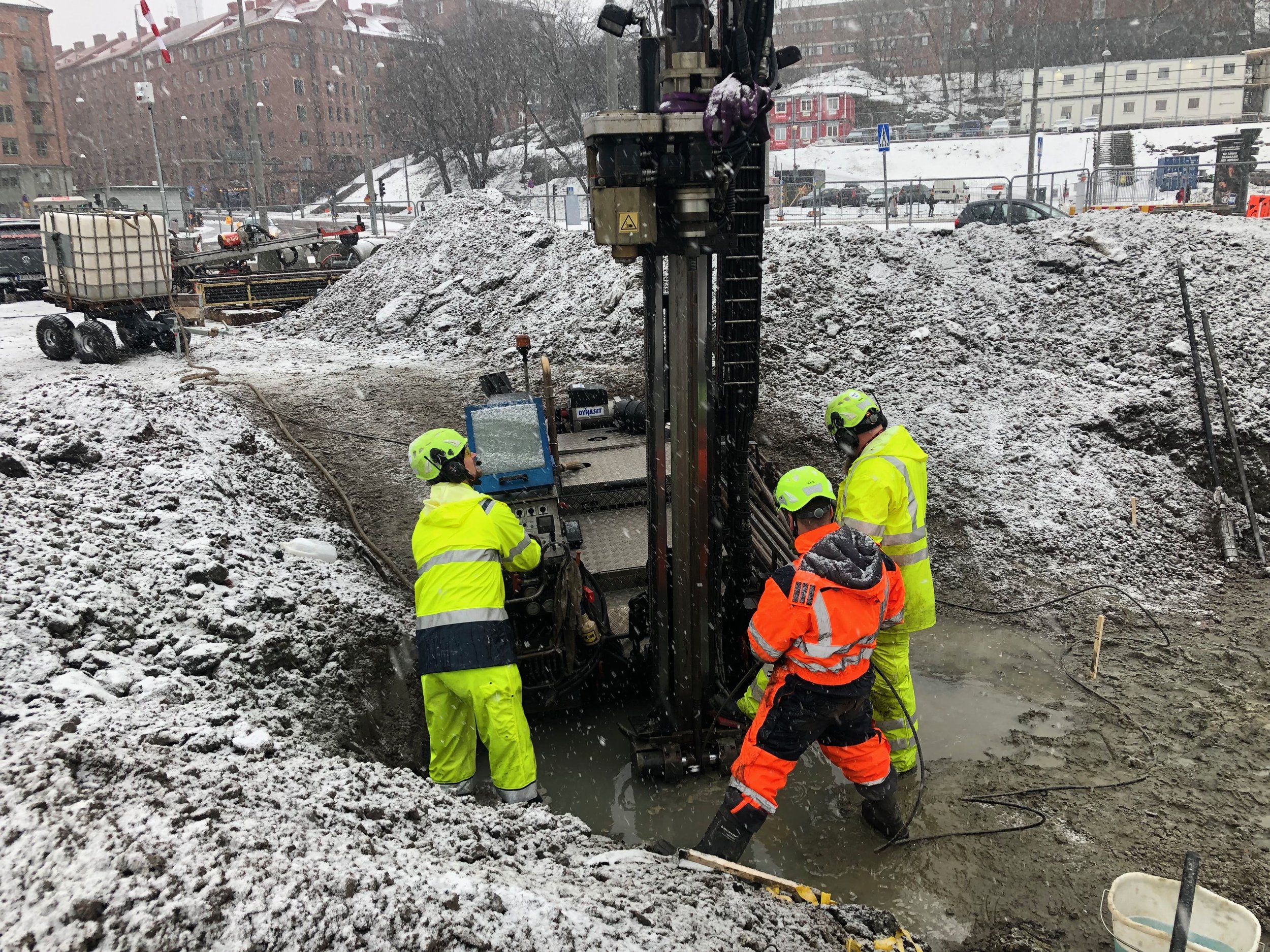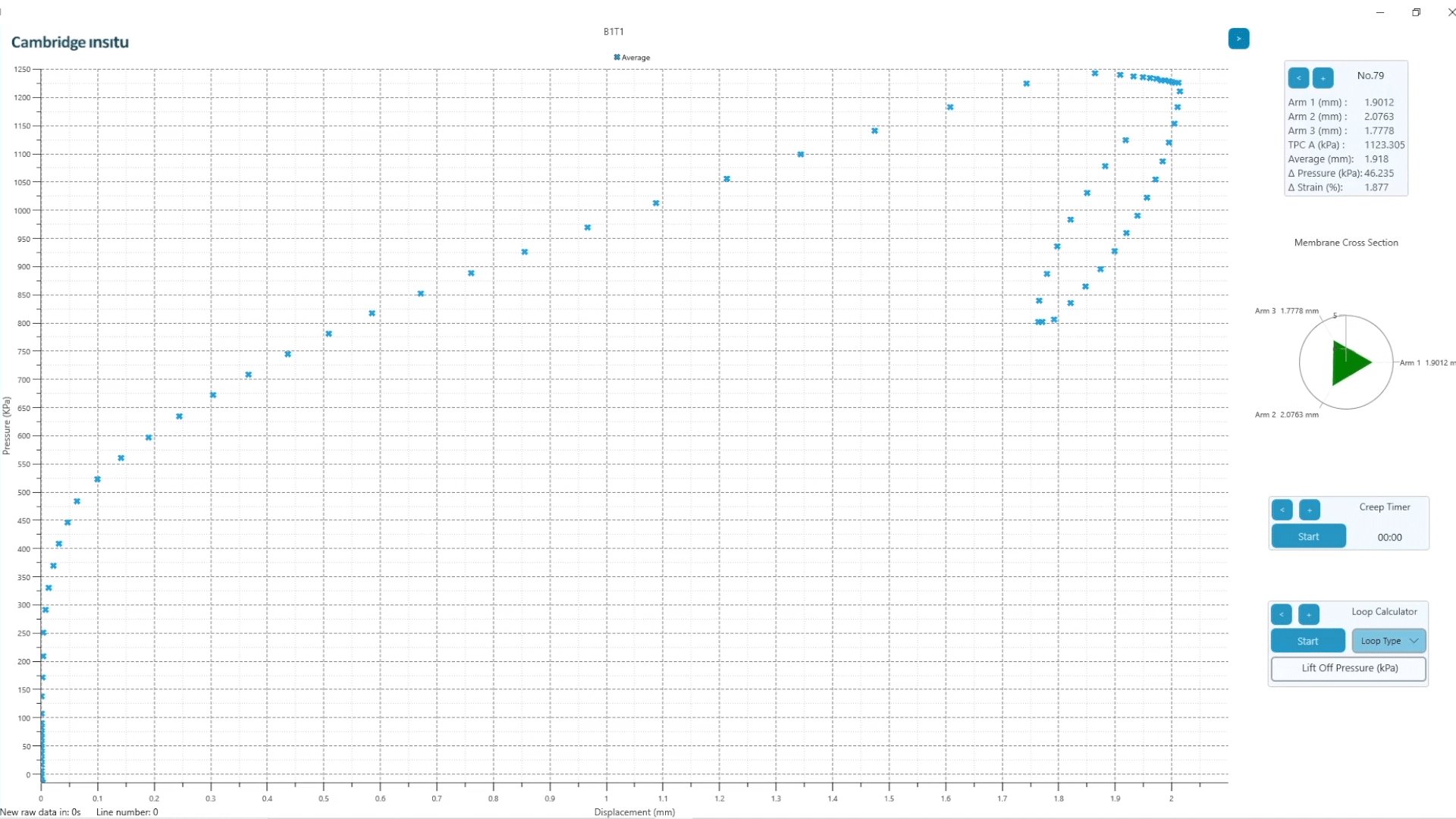
World leading pressuremeter testing services, tailored to each project.
Our Pressuremeter Services
-
Properly conducting direct-strain measuring pressuremeter testing is an involved process. Successful operation of the equipment requires an experienced engineer with an understanding of soil and rock mechanics for the test to be conducted to maximise the data. The small details of how a test should be conducted can only be decided once the material response is being observed, so only qualified and skilled operators capable of this process are involved in our site operations. Needless to say, we are incredibly proud of our team and their expertise.
It is important to recognise that things can go wrong on site, most commonly as a result of membrane ruptures. These can be due to a range of reasons, such as an unfortunately positioned sharp inclusion within the test pocket. Should this happen, our engineers will work to fix the problem on site, there and then, thus minimising expensive downtime. All our site engineers are involved in the manufacture and calibration of the equipment they use on site, so maintaining and repairing equipment is a very familiar operation for our team.
-
Analysing the data is again a specialist task. All our site-qualified staff are involved in the preliminary processing of data and results. As such, our engineers can provide on-the-ground advice and suggestions during testing. Furthermore, we have a dedicated analysis & reporting team, with soil and rock mechanics specialisms. The deliverable from our pressuremeter testing includes a two-volume report, which presents all the results as well as detailed workings, demonstrating how they are determined.
-
Increasingly, there are projects we are involved in where we are invited to provide advice directly to the consultant and designer. This has opened a new way of collaboratively working, allowing a new level of two-way understanding and communication. In turn this maximises the data set gained from our pressuremeter testing. Examples of this type of collaborative working include making recommendations on the survey, the scope of the testing and in target testing horizons. Advice is also given on the most suitable instrument and test method for a specific site or application. The style of tests, and with what instrument. Where suitable, we advise regarding bespoke testing to target specific complex parameters, to inform FEA and FEM.
Pressuremeters are employed to provide insitu strength, stress and stiffness parameters of soils and rocks.
This type of testing provides high quality information due to the minimised disturbance of the insitu ground state, particularly when compared to samples removed for geotechnical laboratory testing. Testing is carried out in accordance with the relevant sections of BS EN ISO 22476, depending on the type of pressuremeter deployed.
To achieve the desired parameters, all pressuremeter tests consist of an incremental increase and decrease of radial stress, acting on the material at the borehole wall. This varying radial stress is dictated by the pressure within the instrument itself, which is controlled by an operator at the surface.
During testing, the borehole wall is loaded as a cylindrical cavity. The change in pressure and resulting movement of the cavity are recorded. This demonstrates a cavity expansion with an increase in cavity strain, allowing for a closed form analytical solution. This technique avoids empiricism, unlike more traditional systems which measure volumetric changes. The way the instrument’s pressure is controlled by the operator entirely dictates the type and quality of the test, as does the insertion technique.
All of our pressuremeters have the capacity to measure direct pressure and direct displacement, which can be converted into stress and strain. From here, the pressuremeter data can be analysed to produce key engineering parameters for geotechnical design. This procedure requires careful categorisation of the data. Transparent data processing and appropriate analysis is vital to ensure accurate determination of geotechnical parameters.
High resolution live data plot from a Reaming Pressuremeter (RPM).
The high resolution digital sensors produce a data stream which is displayed live on a connected device. The duration of a test is dictated by the test type and instrument selection.


